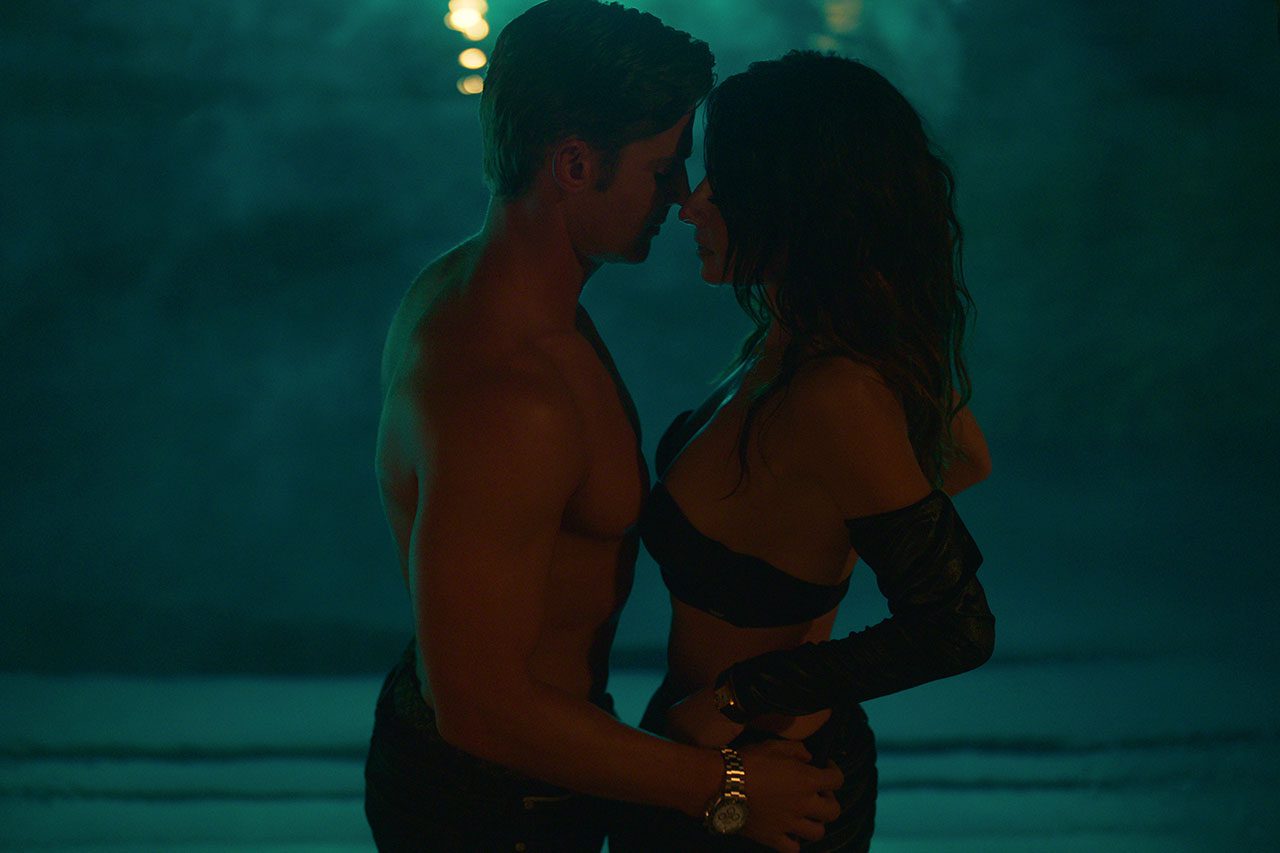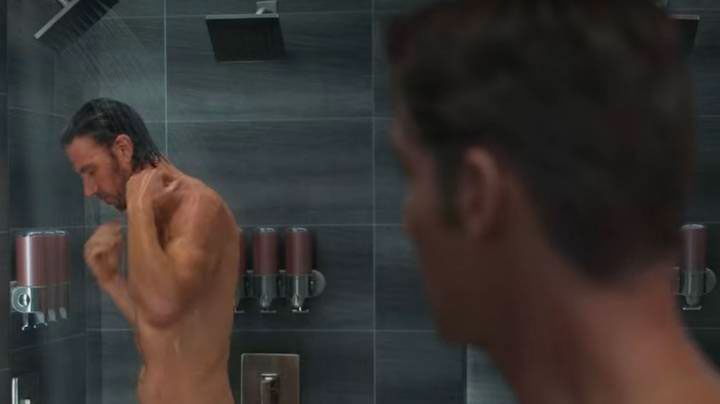Exclusive: Netflix’s ‘Sex/Life’ Intimacy Coordinator Casey Hudecki Talks Onscreen Sex And Nudity In A Post #MeToo World

For most of us, especially in a taboo-upholding country like India, our sex education comes from movies, TV shows and porn. It’s not ideal, because it doesn’t just give us unrealistic expectations about sex but it also muddles our understanding of how these sex scenes are actually filmed. Which, FYI, is quite professional and simulated and all about angles and instructions rather than emotions and intense heat of the moment. In fact, just as fight sequences have stunt coordinators and choreographers, so do sex scenes. So all that hot and heavy action you’ve seen on shows lately, like say, Sex/Life or Bridgerton, they’re all well planned, written with enormous detail, choreographed keeping comfort in mind and, lately, worked upon by someone known as an intimacy coordinator.
When #MeToo swept Hollywood, the matter of sexual harassment in the workplace was being taken more seriously than it ever had. And filming of onscreen intimate scenes was a big one in its purview. Are the actors feeling safe and not exploited? Are they comfortable with the scene’s demands? Is what’s happening when the director yells “Action!” adhering to what was pre-decided? These are just some of the questions that were finally being asked to ensure that actors of all ages and genders didn’t end up doing something they didn’t want to or were impacted by what they’d filmed (in scenes involving sexual violence) in a negative way. Enter the intimacy coordinator, a professional whose demand on film and TV show sets is steadily rising.
In India, too, as OTT content gets closer to reality and bolder, and film discourse begins holding creators accountable, a need has been felt of having professionals on board that can help ensure that. But of course, it is a relatively new profession here, and the scope of work isn’t clear for many. I, too, had a very one-dimensional view of what an intimacy coordinator’s job entails. Until I recently watched Sex/Life on Netflix. The series, created by Stacy Rukeyser lays major emphasis on themes of female pleasure, intimacy, desire, and has oodles of sex scenes, each crafted in a way to highlight the show’s central themes.
And that’s when my curiosity grew, and made me reach out to Casey Hudecki, an actor turned intimacy coordinator (as well as a stuntwoman and a fight director), who has worked on shows like Spinning Out, Ginny And Georgia, The Handmaid’s Tale and more. She worked with Rukeyser and actors Sarah Shahi, Adam Demos, Mike Vogel and Margaret Odette to bring us the ‘sex’ in Sex/Life. With her, I talk about the scope of her work, her process on set with the director and actors on Sex/Life, and how the need for intimacy coordinators has evolved over the past couple of years.
View this post on Instagram
And, *sigh*, yes about THAT scene in Episode 3.
Q: Hey Casey! Can you describe what is the scope of your work as an intimacy coordinator on a film/show set?
A: My job as an intimacy coordinator is being an advocate for the actor, a movement coach, and a facilitator or communication and protocols for scenes of nudity and simulated sex. In practice it is much the same as any department head: I read scripts, break them down and meet with the director to get an idea of how they envision the scene. If it says “They get it on”, what does that mean? Is there nudity? What is the action? How will it be shot? Then I have private talks with the cast to make sure this fits within their boundaries. I get very specific. I then communicate with the relevant departments to make sure everyone is on the same page. On shoot day or during rehearsals, I assist with choreography so that everyone feels safe and the action is convincing for the camera.
Q: Is there a professional course/certification that is required to become an intimacy coordinator?
A: There are several certification programs to be an Intimacy Coordinator, and standards are starting to be set with studios and unions in regards to what that means. An Intimacy Coordinator should have experience in the film/tv industry, movement coaching experience, as well as training in mental health, trauma awareness, conflict resolution, anti-racism, and gender and sexuality, to name a few examples. This work has a lot of nuance, and requires experience, mentorship and training.
Also Read: Pooja Bhatt Says She Turned Intimacy Coordinator For Jism, Told Bipasha Basu To Decide How Far She Wanted To Go
Q: At what point in the filming process do you get involved? Especially for a show like Sex/Life, where sex scenes were a major component.
A: Ideally, I am brought in during prep on any show I work on. I need to get a sense of the vision for the scenes, coordinate with the relevant departments (i.e. costumes, prosthetics, etc.) as well as have time to discuss the nudity and simulated sex or sexual violence expectations with the cast.
This industry moves very quickly, so involving the intimacy coordinator as early as possible in the process ensures that the performers have the time and information they need to give their free consent. This also gives us time to troubleshoot and make plans so we can make sure we tell the story we want to tell in a way that respects the actors boundaries.
Q: What I loved about Sex/Life is that it puts female pleasure first. How did you and creator Stacy Rukeyser make sure you were bringing out the show’s themes?
A: Stacy was very focused on making sure that we put female pleasure front and centre. Very often in a script, it will simply say something like “They have sex”, but Stacy put every detail on the page, which meant we could get very specific about how to make those words come alive. So often simulated sex scenes jump straight to intercourse, or to climax, which is just not realistic. We focused on the building of tension, foreplay, and allowing the camera to linger on the male characters instead of the female characters.
Also Read: Sex/Life On Netflix Isn’t Perfect. But Here Are 5 Things It Got Right About Female Pleasure, Marriage And Friendship
Q: Sex/Life has a lot of sex scenes. What goes into making each one look and feel different and not repetitive?
A: There were a lot of intimate scenes in Sex/Life – and Stacy was adamant that each one tell a story. We would discuss the scene and what was happening in it: This scene is about them really falling for each other, this is about exhilaration, this one is playful, etc. My favourites were the scenes between Cooper and Billie—they were so funny, sexy and heartbreaking—it was interesting to help create scenes with so much nuance. While the Billie/Brad scenes were nostalgic and fantasy, the Cooper/Billie scenes were about characters in the complex reality of life with kids, miscommunication and disappointment.
Q: How do you go about establishing a comfort level with the actors? Does the process become easier if the actors are friends/a real-life couple?
A: We have a lot of very specific conversations before we build scenes of intimacy. It’s important for actors to understand each other’s boundaries, what are the limitations and where they are safe to play together so they can commit to the scenes. For each actor that means something different.
My process is much the same whether the actors know each other or not. Even if you are real life partners, you need to draw a line between your personal and professional life: Your real life boundaries may not be relevant or appropriate to the story you are telling, and there may be things you are comfortable doing with your partner in your private life that you are not comfortable doing on camera. Context is a very important element of consent.
Q: Is the approach different when you’re working with young adults/teenagers as opposed to adults/experienced actors?
A: Young adults and teenagers are definitely more vulnerable in this industry, as they, and any less inexperienced actors, are more likely to go along with something they are uncomfortable with in order to not appear difficult. That pressure exists for everyone. My job is to give them as much information as I can, and create time and space for them to be able to assess and consider what they need.
View this post on Instagram
I am also there to provide tools to help them separate themselves from their character (especially for scenes of sexual violence), and help coach their movement, when requested (especially if they are performing something they have not experienced).
Q: Let’s talk about ‘The Scene’ from Episode 3, with Adam Demos, that everyone couldn’t stop talking about! Can you elaborate on what went into writing and shooting a scene with male full-frontal nudity?
A: Full-frontal nudity was always written into that scene, so Adam and I had a conversation about it very early on in the process. I walked him through the various ways we could shoot it, and Stacy walked him through the ‘why’ of the scene—Cooper’s jealous journey. I won’t discuss how we ended up shooting that scene, that is Adam’s to disclose. What mattered to me in regards to Adam’s shower scene in Episode 3 is that he did not feel pressured to perform frontal nudity, the set was closed, he was respected and that he had agency throughout.
Adam Demos did speak about it in an interview with Entertainment Weekly, saying “I was okay with it because you read the script and know what you’re getting yourself into from the start, so I don’t think you would sign on to a show after reading the scripts and then say no last minute. That doesn’t mean you can’t have discussions about comfort level, which they allowed us to have – and with the intimacy coordinator, so it felt a lot safer.”
As for the big questions on whether a body double or a prosthetic penis was used for the scene, showrunner Stacy Rukeyser gave a partial answer to Collider. “No. That’s not a body double. I mean, people usually ask is it real or is it a prosthetic? And I can tell you what Adam Demos says about it which is, a gentleman never tells. So, we are leaving that up to the viewer’s imagination.”
Also Read: Netflix’s Sex/Life Is Not Just A Steamy Show. Here Are 5 Important Relationship Lessons You Can Learn From It
Q: I’ve always been very curious about how sex scenes are written. Like, literally ‘written’ in the script in terms of the language used. Is it subtle, direct, detailed…?
A: Sex scenes are written in all sorts of ways. Much like fights, it can say simply “They fight” or it can be more specific. Often what a writer wants to convey on the page is the tone and story points that need to come across. Some are very specific about what needs to happen, from a choreography standpoint, and some leave it to the director (and some directors leave it to the choreographer). It’s always a discussion. On Sex/Life, Stacy wrote the scenes very explicitly, and they were generally shot as written, with adjustments for locations and comfort, etc.
Q: What we’re seeing a lot, in a post Game of Thrones world, is violence porn and sex added in for shock value when it isn’t really required. Does an intimacy coordinator get consulted on decisions of how much is too much?
A: As an intimacy coordinator, I do not decide the content of the scenes. I facilitate the director’s/showrunner’s vision, and ensure that the story gets told safely and with respect for the actors’ boundaries. My feelings about the content of the scene are not a factor to production, but I am able to give input, when asked, about how the scene might be choreographed—sometimes offering more affirming or authentic elements, or suggest actions that are under-represented.
Also Read: Kate Winslet And Salma Hayek’s Interviews Prove That Intimacy Coordinators Are A Dire Need On Set
View this post on Instagram
Q: What’s a common misconception about on-screen intimacy that you’d happily like to bust?
A: In my role as an Intimacy Coordinator, I am not a censor. I am not there to tell production that they can’t do a sex scene, I am there to facilitate the sex scene, and increase communication and clarity about how we are going about it. I am also not there to get between the director and the actors, that relationship is very important. But I do exist as a party outside the power dynamic that can advocate for an actor that may not feel able to voice their concerns or questions to a director or producer.
Q: Can you talk about how the need for an intimacy coordinator has evolved in the industry over the past couple of years? Was #MeToo a watershed moment that brought about the change?
A: #MeToo was definitely the catalyst for the industry to consider Intimacy Coordinators. The role is very new, and has exploded in the last four years. Before that, even a very well-intentioned production had gaps in it that led to miscommunication, coercion and worse.
In my career, before intimacy coordinators, I performed scenes of nudity and simulated sex, and even though I was not mistreated, I still experienced a lot of anxiety around the unknown: I didn’t know the choreography, or what the camera was seeing; I didn’t know what I would be wearing (or how to put it on), I didn’t know if what I was doing looked good, and I had no one to ask. I know it is a great relief to actors (and other departments), having someone in charge of creating clarity, talking through the specific action and modesty and barrier garments, implementing clear protocols on the day, and helping create a convincing illusion.
ALSO WATCH:
Women Share Tips On Being More Sex Positive For More Pleasure





















